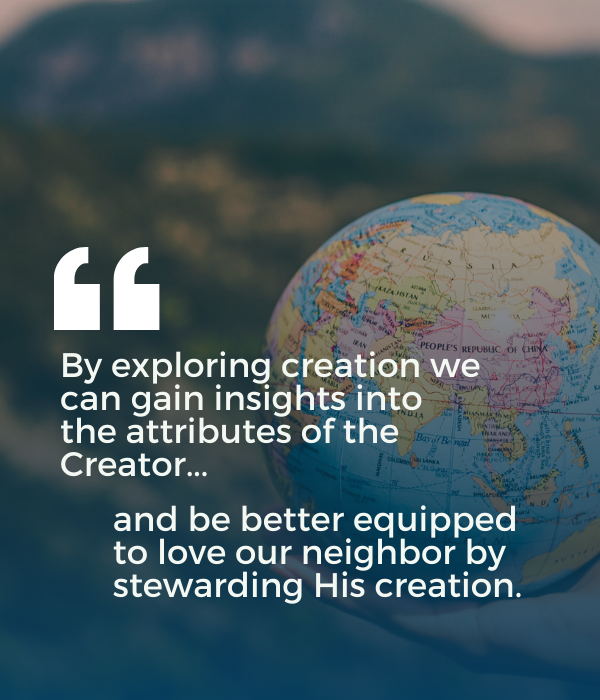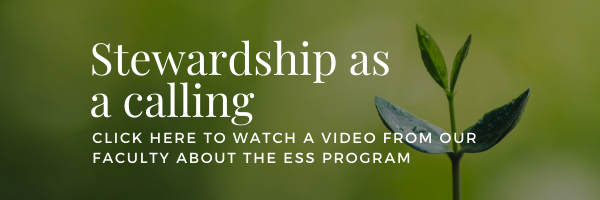
The Environmental Science & Stewardship major (ESS) at Patrick Henry College was carefully shaped to meet the needs of our present-day scientific industry. Two distinct ingredients—a robust scientific foundation and a biblical philosophy of stewardship—were combined in order to bring together faith, science, and leadership. It is for the science professional who will practice science, not in a humanistic manner, but under the authority of the Creator God.
In the 21st Century, environmental scientists must be trained to independently conduct and analyze research, evaluate problems holistically, and draw data from a wide range of disciplines in order to develop integrative solutions in an increasingly complex world.
Today's science professional must be able to communicate their findings effectively, bridging the gaps that exist between scientists, industry, policymakers, and the public. So, in that context, what does it mean to steward creation in a biblical way in the Environmental Science and Stewardship program?

Quote from Professor David Lee, Assistant Professor of Biology, PHC
“Biblical stewardship is an underlying philosophy that should guide our approach to interacting with creation,” said Dr. Mark Mitchell, Dean of Academic Affairs. “This includes scientific research, law, policy, science education, and the practice of medicine.”
Interacting with creation in the ESS major includes blending God-given responsibility for creation, fidelity to Scripture, and understanding scientific fact in the realm of philosophy and biblical ethics.
“As a field, Environmental Science is interdisciplinary, so rather than being segmented, students will be trained to think holistically about, and find solutions for, a variety of concerns,” said Professor David Lee, Assistant Professor of Biology & Earth Science.
But an interdisciplinary study—especially one that considers ethics, history, and philosophy—is growing increasingly absent in college-level studies.
Science is becoming increasingly divided from faith and religion as it touts superior ability through scientific discovery over the guiding principles of a divine Designer.
Christopher Hitchens, a longstanding face of the anti-theistic movement until 2011, once said of religion and science: “To ‘choose’ dogma and faith over doubt and experience is to throw out the ripening vintage and to reach greedily for the Kool-Aid.”
The need for combining science with faith and reason has never been so great as Christians interact with the secular culture and defend their knowledge of an intelligent Creator. The ESS major is designed to thoroughly equip students to have compelling answers to anti-theistic and anti-religious sentiments and answer the question: What does it mean to steward creation in a biblical way?
“By exploring creation we can gain insights into the attributes of the Creator,” says Professor Lee, “and be better equipped to love our neighbor by stewarding His creation.”
The ESS major at Patrick Henry allows students to grow in their knowledge of science with a faith-based, biblical examination of creation. Caring for the creation includes a twofold process:
First, Christians must understand the creation they are caring for by learning about various aspects of the created order.
Second, once this knowledge is rooted in education, students are better equipped to intelligently and creatively devise policies, programs, and behaviors that are suited to cultivating, developing, and enhancing God’s creation.
Click below to watch a video that illustrates the Environmental Science & Stewardship program at PHC.




